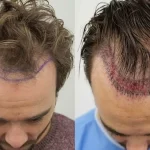Medication-assisted treatment (MAT) programs have revolutionized addiction treatment. It combines medication, counseling, and behavioral therapy, all in one. These programs have been proven to be highly effective in helping individuals struggling with addiction. This is extremely helpful for those suffering from opioid use disorders. If you or a loved one is seeking help for addiction, it’s essential to understand what a medication-assisted treatment program is and how they work.
This blog post aims to provide a comprehensive guide to medication-assisted treatment programs. By the end of this post, you’ll better understand how MAT programs can help individuals achieve successful long-term recovery.
What is Medication-Assisted Treatment?
MAT is a comprehensive approach to addiction treatment. It uses medication to help reduce withdrawal symptoms and cravings while also providing counseling and behavioral therapy. The therapies aim to address the underlying issues that led to addiction. Additionally, the medications used in MAT programs are FDA-approved and can be safely administered under medical supervision.
The benefits of MAT programs include:
- reduced risk of overdose
- improved overall health
- increased likelihood of successful recovery
MAT works by targeting the brain’s opioid receptors. It helps reduce cravings and withdrawal symptoms, allowing individuals to focus on their recovery.
Several types of medications are used in MAT programs, including methadone, buprenorphine, and naltrexone. Each medication works differently and is tailored to meet the specific needs of the individual.
Who is a Candidate for Medication-Assisted Treatment?
Addiction is a chronic disease that can affect anyone, regardless of age, race, or socioeconomic status. However, not everyone is eligible for medication-assisted treatment programs (MAT). To qualify for MAT, individuals must be diagnosed with substance use disorder. They also must meet specific criteria, such as a history of opioid use or a demonstrated need for medication-assisted treatment.
Common misconceptions about MAT include the belief that it is simply replacing one addiction with another or that it is a “quick fix” for addiction. However, MAT is a long-term treatment approach that can help individuals achieve. It can also maintain sobriety by addressing the underlying physical and psychological factors contributing to addiction.
Finding the Right Medication-Assisted Treatment Program
Different MAT programs are available, each with its approach and philosophy. When choosing a MAT program, it’s essential to consider several factors. Factors to take note of may include the type of medication used, the length of the program, and the level of support provided. Finding a program tailored to the individual’s specific needs is also necessary.
To find the right MAT program, individuals can speak with their healthcare provider or seek referrals from local addiction treatment centers or support groups. They may also look for online providers like Confidant Health if they wish to receive expert help in the comforts of their homes. Confidant is an app that provides easy access to expert care for those who need it, so anyone can get the help you deserve in a confidential and discreet setting.
The Role of Therapy in Medication-Assisted Treatment Programs
Therapy is an integral part of MAT programs. It helps individuals address the underlying issues that led to addiction in the first place. Behavioral therapies such as cognitive-behavioral therapy (CBT) and motivational interviewing (MI) are commonly used in MAT programs. These therapies help individuals learn coping strategies and develop healthier ways of thinking and behaving.
Combining medication and therapy is highly effective in treating addiction, as it addresses the physical and psychological aspects of the disease.
Common Concerns About Medication-Assisted Treatment Programs
There are several common concerns and misconceptions about MAT programs, including matters related to medication use and the effectiveness of MAT. However, research has shown the effectiveness of MAT programs in treatment and recovery.
Addressing concerns related to medication use involves educating individuals about the safety and effectiveness of FDA-approved medications used in MAT programs. It can be addressed by providing individuals with evidence-based research and testimonials from individuals who have completed MAT programs.
The Importance of Support in Medication-Assisted Treatment Programs
Support is a crucial component of addiction recovery and is vital in MAT programs. It may come in many forms, including support groups, individual counseling, and peer support programs. A strong support system can help individuals stay motivated and accountable throughout their recovery.
Research has shown that individuals who receive support during addiction treatment are more likely to achieve and maintain sobriety than those who do not accept consent. Support can also help individuals navigate the challenges of addiction recovery, such as triggers and cravings.
Finally, it’s important for individuals to find the type of support that works best for them and to take advantage of the resources available in their community.
Taking the First Step: Seeking Help and Support Through Medication-Assisted Treatment
In conclusion, medication-assisted treatment programs can be a highly effective approach to treating addiction. By combining medication with counseling and behavioral therapy, individuals can receive comprehensive support to help them achieve and maintain sobriety.
Finding the proper medication-assisted treatment program is crucial. It’s important to consider factors such as the type of medication used and the level of support provided.
Remember that addiction is a chronic disease, and seeking help through a medication-assisted treatment program is a sign of strength and courage. With the proper support and resources, individuals can overcome addiction and lead fulfilling lives in recovery.













